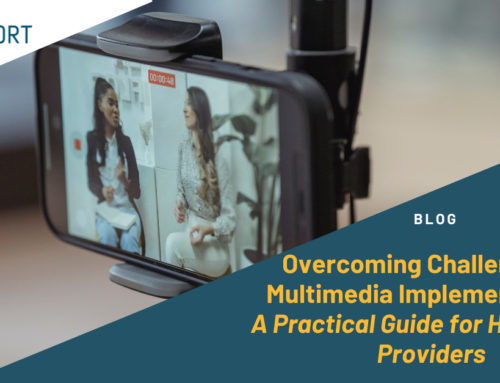Long Live Decentralized Trials
Massive disruption from COVID-19 is forcing clinical trials to decentralize and accelerate digital transformation. However, these measures are not just survival tactics. They’re leading to a more productive and resilient industry.
COVID-19 stopped thousands of trials in 2020
CenterWatch reported in May 2020 that more than 1,100 clinical trials (46% of the global total) either stopped, discontinued enrolling patients or were suspended indefinitely. The Lancet reported that the pandemic impacted 80% of all non-COVID-19 trials.
It’s a staggering blow when so many trials are shut down, not only for the trial companies but also for the entire biotech industry. CNBC noted it can cost upward of $3 billion to develop new therapies, of which clinical trials average 30% of the development cost. Even more critical is the human cost of delaying thousands of urgently needed treatments.
COVID-19 has forever changed the clinical research landscape
Many observers believe the industry has been ripe for disruption for years and point to numerous operational factors in addition to high costs. While it is unproductive to dwell on past problems, a few statistics highlight the need for new solutions.
A 2019 paper published in Biostatistics estimated that only 13.8% of all drug development projects resulted in approvals. Several indicators highlight how clinical trial problems contribute to a high number of failed projects:
- On average, 30% of clinical trial participants dropped out before the trial ended.
- 67% of trial study sites were unable to meet enrollment goals.
- 85% of studies did not retain enough patients to meet trial criteria.
Clinical trial companies have few options but to pivot
To comply with social distancing restrictions, trial managers began incorporating decentralized trials and virtual technologies (such as eConsent software or patient engagement software) to get projects back on track. An August 2020 study by ERT reported that 82% of clinical organizations now use or plan to use virtual technologies in the future. Examples include screening new patients remotely, switching to telehealth visits and using the patients’ digital devices. Other recent posts in Biospace.com and Medcitynews.com report similar findings.
Commenting on CNBC in June 2020, Michelle Longmire, founder and CEO of Medable, said it would otherwise have taken five years to decentralize as quickly as the industry did in 60 days.
The evidence is clear: No turning back
Trial managers may be pivoting to virtual or decentralized trials out of necessity, but the evidence points to a permanent trend of relying more on virtual medicine, digital technology and patient-centric trial administration.
Pharma Times is among many voices that believe “virtual care is here to stay.” Not only are regulators and sponsors pressing for more cost-effective virtual technologies, but consumers increasingly demand digital options from caregivers, just as they do in other aspects of their lives.
A study in the August 2020 edition of Annals of Neurology titled “The New Normal in Clinical Trials: Decentralized Studies” summarizes 10 significant differences between pre- and post-COVID-19 clinical trials. The authors conclude that many of the changes are “irreversible.”
The imperatives for digital transformation
Digital transformation, a moniker that came into our parlance in the early 2000s, defines strategies that employ new digital technologies not just to augment or replace existing processes but to transform an entire organization into a better, more efficient and competitive enterprise.
Numerous articles during the last few months have emphasized the need for healthcare to accelerate digital transformation. Dr. Judd Hollander succinctly summarized the situation in a June 2020 NEJM interview, noting that many other industries used digital technologies to pivot during the pandemic quickly. However, he concluded that “the health care system is still managing this crisis largely through risky brick-and-mortar visits.”
Hybrid trials are becoming the norm
Decentralized trials doesn’t work for all aspects of clinical studies. Patients still need to visit facilities for many procedures: physical exams, oncology, medical imaging, to name a few. There’s still great value in in-person consultations between physicians and their patients.
As the name implies, hybridization integrates virtual technologies such as eConsent software and patient engagement software into specific phases while continuing traditional trial methods where required. Hybrid trials that work well for healthcare providers and patients are likely to become the predominant approach.
So what steps should you consider to begin incorporating virtual technologies into your trials?
Let’s look at a few starting recommendations for decentralizing your trials.
- Put patients first. Simply ask at each step of the trial, “How can we make this experience as convenient and comfortable for the patient as possible?”
- Decentralize sites. Consider alternatives to minimize patients’ need to visit a healthcare facility by substituting video conferences, home healthcare professionals or nearby clinics. Avoid asking patients to travel long distances or for extended periods. It’s an even more critical issue for minors and the elderly, as they often need others to accompany them.
- Use telehealth for patient screening and other interviews. In the work-from-home economy, many families have become proficient with video meetings and online education. Videoconferencing, patient engagement software and eConsent software are secure alternatives for conducting patient exams and private interviews.
- Adopt virtual technology for evaluations. Telemedicine or home-health visits can facilitate patient evaluations, concomitant medications and monitoring. Smartphone apps and wearable devices integrated with other patient engagement software can effectively track many vital signs.
- Utilize patient engagement videos. Video education is proven to be very effective for comprehension and retention. Video presents the opportunity to engage with both prospective and current subjects, helping to increase both enrollment and retention rates.
- Switch to electronic documentation. eConsent software can electronically document assessments, evaluations and authorizations without requiring patients to handle paper or be physically present with clinical personnel. Some solutions on the market offer white label eConsent options that will bolt onto established EDC Platforms, CTMS, and ePRO’s.
Summary
Digital technologies have become essential methods of doing business in many industries. A good clinical trial combines finding new treatments in the most accessible or convenient way and decentralized trials will facilitate that.
You may also find digital technologies and decentralization become central concepts for better patient engagement, more accurate and comprehensive data capture and collection, reduced trial costs and more competitive and resilient businesses.




